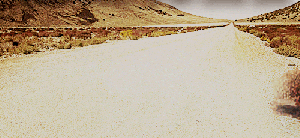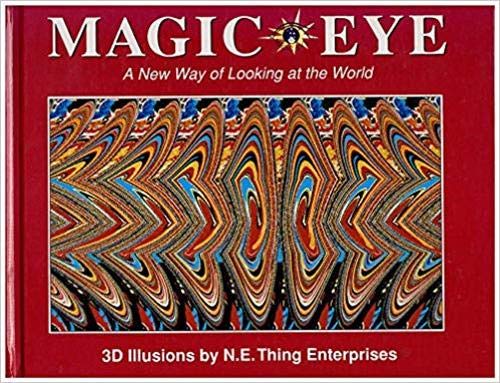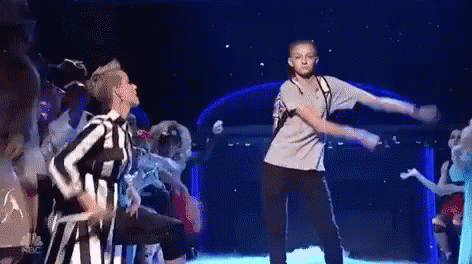Understand a funny anecdote by comedian Bill Burr. In this episode we’re going to do some intensive listening practice using the true story of a bizarre encounter with a man on a plane. Look out for language for travelling by plane, some American English and A LOT of swearing, particularly the F word.
![]() [DOWNLOAD]
[DOWNLOAD]
Introduction Transcript
In this episode you’re going to do some fairly intensive listening practice, using a funny story.
This is just a story which I find really enjoyable, and I keep going back to listen to it and I just want to share it with you.
Do you have things like that? Like, YouTube videos that you keep going back to again and again because they make you laugh for whatever reason? For me, this is one of those things.
Hopefully you’ll find it as enjoyable as I do
Maybe you won’t, you know, because you just might not get it for whatever reason. It might not be your cup of tea and of course you just might not understand it like I do because of your level of English, but we’ll see about that, and that’s my aim in this episode – to try and help you to understand this like I do, which hopefully will result in you just finding it funny like I do.
I’ve been here so many times before – sharing comedy with learners of English. I’ve done this plenty of times as an English teacher, thinking “This is hilarious, I’m going to use it with my students, it’ll be brilliant!” And then I play it to my students and it’s just tumbleweeds in the classroom…
*Luke goes off on a tangent about tumbleweeds in western movies*

…and nobody gets it and I think “I will never do this again. Just pages from English Grammar in Use next time”, even though the students probably did enjoy it, but they weren’t able to laugh out loud because it was difficult to understand. But in the past, that kind of experience has made me feel quite bad, as an English teacher.
To be honest, these days that doesn’t happen to me as often as it used to. I think I’ve finally learned that comedy will only work in the language classroom if you devote loads of time to helping the students understand it – understand the specific vocabulary used, the context and the pronunciation and delivery (often it’s just that it’s hard to catch specifically what’s been said and if you miss one little bit you won’t get the joke).
(As we know) Comedy is extremely hard to enjoy in a second language
…and this is because it’s all about understanding things instantly and being able to pick up on very subtle changes in tone – not just the words being used, but the nuances of the comedian’s attitude and shared experiences that you’re supposed to know about.
So, as we know, it can be hard to understand comedy, but I’m still committed to helping learners enjoy it, because I enjoy it so much and I just think you’re missing out if you don’t get it.

It’s like one of those 3D posters or something, but obviously, much better than that. (Remember those 3D posters? If you couldn’t see the 3D image, they just looked utterly terrible.)
I’ve learned how to do comedy in the classroom (I mean as listening exercises) these days and I tend to lower my expectations a bit and I don’t get so disheartened if my students aren’t rolling on the floor laughing when I show them something. So, it’s alright.
So, you’re going to hear a story which I find funny. I’m going to try to help you to enjoy it too, but if you don’t. That’s totally fine and it doesn’t matter that much anyway because the main thing is that you’ll be learning English and if you have a bit of a chuckle in the process, that’s just a bonus isn’t it?
What is this Luke? What is this thing you’d like to share with us?
This is the audio from a YouTube video. It’s a true story told by a stand up comedian on his podcast. We’re going to listen to the whole story and I’m going to break it down and explain it bit by bit.
The comedian’s name is Bill Burr. Have you heard of him? He’s definitely one of the top English speaking stand-ups in the world. He is hilarious, in my opinion, and also in the opinion of many many other people.
He does stand-up shows on stage in very large arenas these days. He has Netflix stand-up specials and he also does other things like some writing and some acting. He was in a few episodes of Breaking Bad, for example. He also has a podcast called The Monday Morning Podcast. It’s called that because it’s published every Monday morning. I think there are episodes on Thursdays too, even though it’s still called the Monday Morning Podcast.
We’re going to listen to an extract from an old episode of Bill Burr’s Monday Morning Podcast here. So, a bit of OPP in this episode today – and if you don’t know, OPP stands for other people’s podcasts.
Some intel on Bill Burr
Bill Burr grew up on the East Coast of the USA, in Boston I think, and I think he has some Irish roots. In any case, he’s from Massachusetts, so he has that kind of East coast accent, not fully Boston, or New York but in that area, as you’ll hear.
In terms of his style, this is from his Wikipedia page (two quotes):
Rolling Stone magazine called Burr “the undisputed heavyweight champ of rage-fueled humor”.
Bill often rants about subjects and tells stories with a certain level of anger, or is it just irate energy? I don’t find him that aggressive or angry actually, beyond the fact that he has a pretty loud and intense voice and he swears a LOT, particularly using the F word (or the F bomb as it is known) and various other typical American English swear words which for some reason make me crack up every time.
Burr often portrays himself as “that loud guy in the bar” with “uninformed logic”.
That’s exactly the sort of guy that he is. A slightly dumb and pissed off guy with a loud mouth and the gift of the gab (although I don’t think he’s dumb – you’ve got to be very clever to be able to tell stories in such a funny way). He sometimes has views which I don’t really agree with, but he’s got such a way with words and a kind of flow to his storytelling, particularly when he gets angry, that it really makes me laugh. He is a naturally talented comedian.
In this story Bill is just describing something that happened to him on a plane. There’s no political subtext or any of that kind of thing. It’s just Bill telling a true story about a weird guy he encountered on a plane.
If you don’t know Bill Burr and you’re a fan of stand up comedy, you might want to check him out. You could listen to the Monday Morning Podcast to hear Bill just chatting about his life and telling stories, and you could see some of his comedy specials on Netflix.
Bill Burr’s Monday Morning Podcast
 Bill’s plane story
Bill’s plane story
Comedians from the states have to do a lot of travelling and so they all seem to have stories of flying and being on planes. This is also something that most Americans can relate to since the country is so big that flying is a regular occurrence, particularly if you travel from coast to coast. Bill is no exception. He’s a top comic who plays to sold out arenas across the country, so he regularly flies to different cities to do his shows. He also came to the UK and sold out some big shows there not long ago. He’s a big deal now but he still manages to tell these relatable stories.
I should warn you that this episode will contain A LOT of swearing (rude words)
 Bill talks to you like you’re his buddy and you’re both sitting down having a drink in a bar or something, and therefore there is a lot of swearing as you would expect in that kind of situation. I’m not suggesting you should talk like this, and swear like this. But I think it’s not a bad idea to be able to understand it and to hear some typical swearing from someone like Bill.
Bill talks to you like you’re his buddy and you’re both sitting down having a drink in a bar or something, and therefore there is a lot of swearing as you would expect in that kind of situation. I’m not suggesting you should talk like this, and swear like this. But I think it’s not a bad idea to be able to understand it and to hear some typical swearing from someone like Bill.
He’s a sort of blue-collar guy, a regular guy from the East coast of the USA and this is how a lot of people like him really speak when they’re with their friends. But, just a warning – this episode is full of the F bomb – and by that I mean the word *fuck* in all its glory, used frequently and I should say very effectively by a true master of the art of swearing – Bill Burr.
So, what about this story? I’ll let you discover it as you listen, but essentially it’s about having an encounter with a really weird guy on a plane.
I don’t know what it is about flying, but it seems to bring out some weird behaviour in people. Sometimes it makes people behave very badly, or weirdly. Perhaps the cramped space in the plane causes this, or the close proximity to other people, the alcohol that people drink, all the security protocols or simply the stress of flying. All of those things can make people act really weirdly on planes. I’m sure most of us have been in situations when there’s a weirdo or a nutter on the plane and you observe some strange behaviour, maybe some arguing or trouble between passengers. If you’re particularly unlucky you might end up sitting next to someone strange, who kind of makes your flight really difficult. It could just be someone who insists on talking to you for the whole flight, or someone who won’t stop moving around, or worse – someone who gets aggressive with you or the cabin crew. This is a story about a situation like that.
So, let’s listen to the story and I’ll explain things that I think are necessary as we go along. I will stop the recording from time to time and explain things, repeat bits if necessary. If you’d like to listen to the whole story uninterrupted, you can find the video of this story on YouTube – it’s called Bill Burr Hilarious Plane Story, and it’s also embedded on the page for this episode.
So this is all American English. Normally it’s British English on this podcast of course, but it’s interesting to explore some American English too and I can perhaps make some comparisons along the way and talk about the differences between how he speaks and how I speak, for example.
I’ll play the story in parts. All you have to do is understand what happened in each part. I’ll pause after a couple of minutes and then sum up the part we listened to. This will probably take the whole episode as the YouTube video I’m using here is about 18 minutes long.
This was recorded by Bill in his home for his podcast. It’s not him on stage. It’s just him and a microphone in his living room or something.
By the way, it might be hard for you to understand what he’s saying at the beginning because you’re not familiar with his voice, but you’ll get used to it, and when we get into the story I think you’ll be fully locked in. I hope so anyway. But again, don’t worry, I will explain things as we go.
Check the page for this episode on the website where you’ll see the YouTube video for this if you want to listen to the whole story again, uninterrupted. Also, you’ll some bits transcribed and also some vocabulary notes.
So let’s go.
https://www.youtube.com/watch?v=HefnGHAaD8g&t=55s
Some Notes & Vocab (unfinished at the moment – I might add more later)
Part 1
Play the first part. From 00:20 until 4:10 when Bill tells the guy his name.
Task: Just try to follow exactly what’s happening. Bill meets a guy on the plane. Who is he? What does he want? What’s Bill’s reaction?
- I go to the airport and I’m taking the red-eye
- A red-eye (or red-eye flight) refers to a long, single flight across the USA which happens at night but doesn’t give you time for a full night’s sleep.
- I’m on a good plane, why would I want to get off it and switch and roll the dice, and get on another one.
- When I’m driving to SF I don’t pull over in, fucking, Burbank and get in another car, “we get it Bill!”
- I use my miles, bump myself up like a fancy person, you know, maybe I invented the Cheesecake Factory, people are thinking… and then they see how I’m dressed and they go “oh no, he didn’t invent the Cheesecake Factory”.
- Bill goes to set his back down in front of me and the “nice fella” says “why don’t you set it in the middle, there’s room” and I think “alright this guy’s a solid dude, or whatever”
Part 2
3:52 (skip back a bit) – Bill tells the guy his name – until 7:22 when Bill says “Fuck this guy, I want to see where this is going!”
Part 3
7:22 to 12.25
Summary: The plane stopped for a while as the crew are finding out what is going on. The guy is asked “Are you going to be ok to fly with him?” and he feels like he’s in control and says “Yeah, don’t worry, it’s ok”. Then he’s getting in Bill’s ear going “You know what? I hope you try something, I fuckin hope you try something when we’re up there” and Bill is just laughing at the guy like “Fuck you you jerkoff!”
Part 4
12:25 – 14:11 “Why are you going to Indianapolis Bill???” 😂😂😂
14:11 – End
…that’s it so far. I might add more notes later if I get the chance!

 Adjective: made to be used once only, and then thrown away or destroyed
Adjective: made to be used once only, and then thrown away or destroyed This comes from baseball originally, but it’s been used so much because of Brexit and the Northern Ireland border issue.
This comes from baseball originally, but it’s been used so much because of Brexit and the Northern Ireland border issue. (the) Floss
(the) Floss Noun: a person, typically male, middle-aged, and white, with reactionary views, especially one who supports the withdrawal of Britain from the European Union
Noun: a person, typically male, middle-aged, and white, with reactionary views, especially one who supports the withdrawal of Britain from the European Union Gaslight
Gaslight Echo chamber
Echo chamber noun: a small toy comprising of two or three prongs arranged around a central bearing, designed to be spun by the fingers as means of improving concentration or relieving stress.
noun: a small toy comprising of two or three prongs arranged around a central bearing, designed to be spun by the fingers as means of improving concentration or relieving stress. adjective: not identifying exclusively with one gender rather than another
adjective: not identifying exclusively with one gender rather than another

 So “Honestly English” – this is her own channel, her own project and therefore is a space where she can teach English in her own way and cover topics that mean a lot to her personally and since Jessica is a huge pop culture nerd her videos and blog posts all contain loads of references to movies and comic books and things like that. She is also very passionate about feminism and raising the status of women in society today.
So “Honestly English” – this is her own channel, her own project and therefore is a space where she can teach English in her own way and cover topics that mean a lot to her personally and since Jessica is a huge pop culture nerd her videos and blog posts all contain loads of references to movies and comic books and things like that. She is also very passionate about feminism and raising the status of women in society today.
